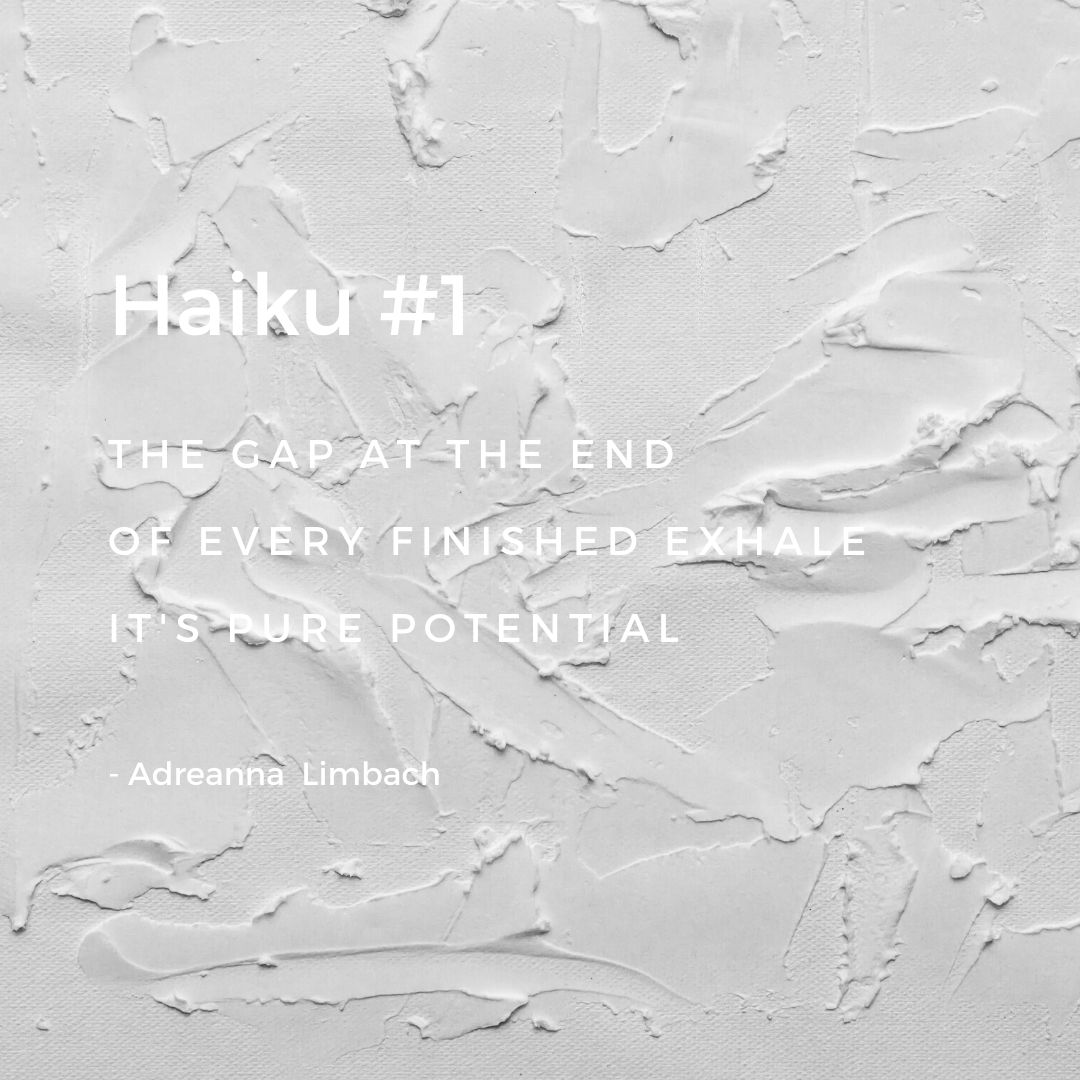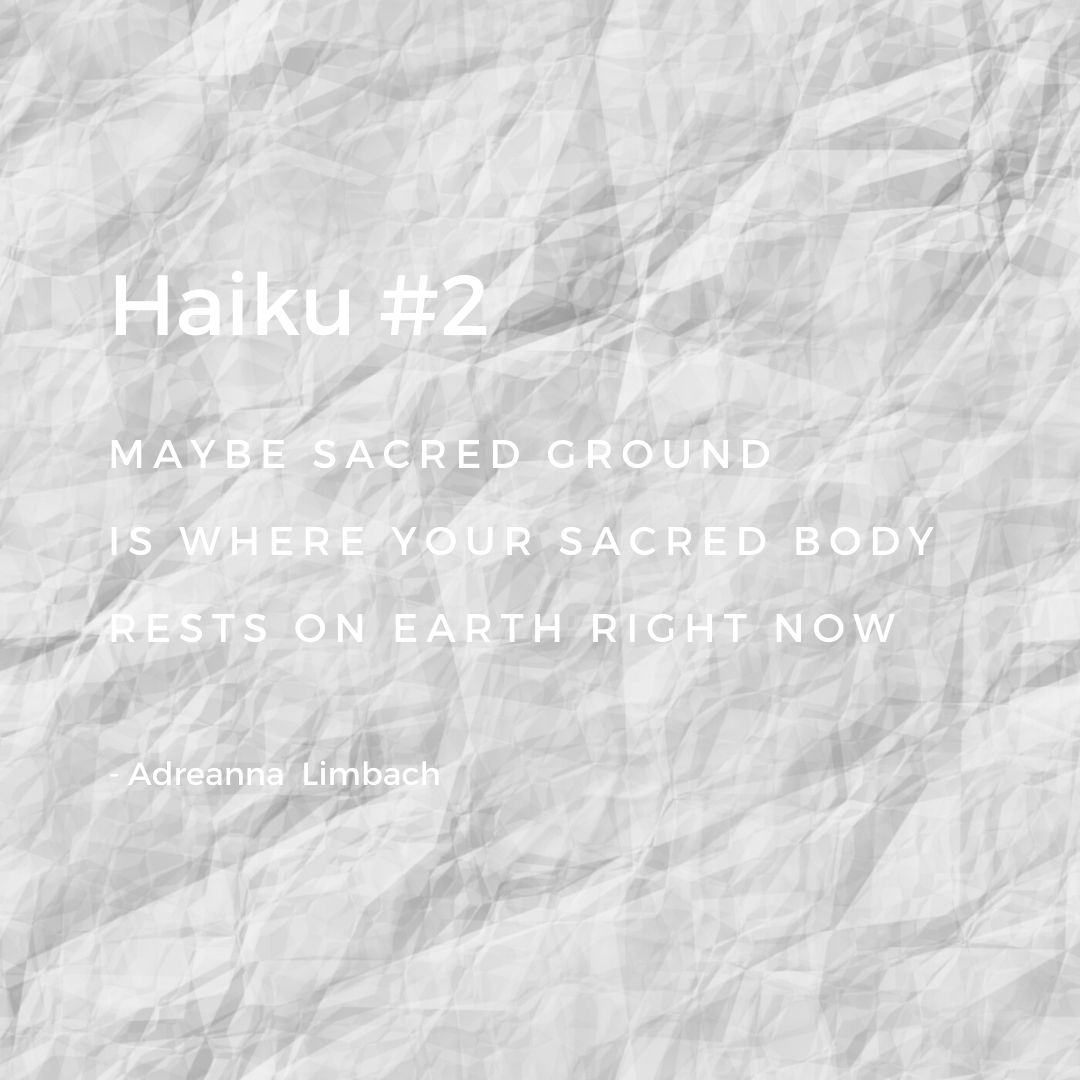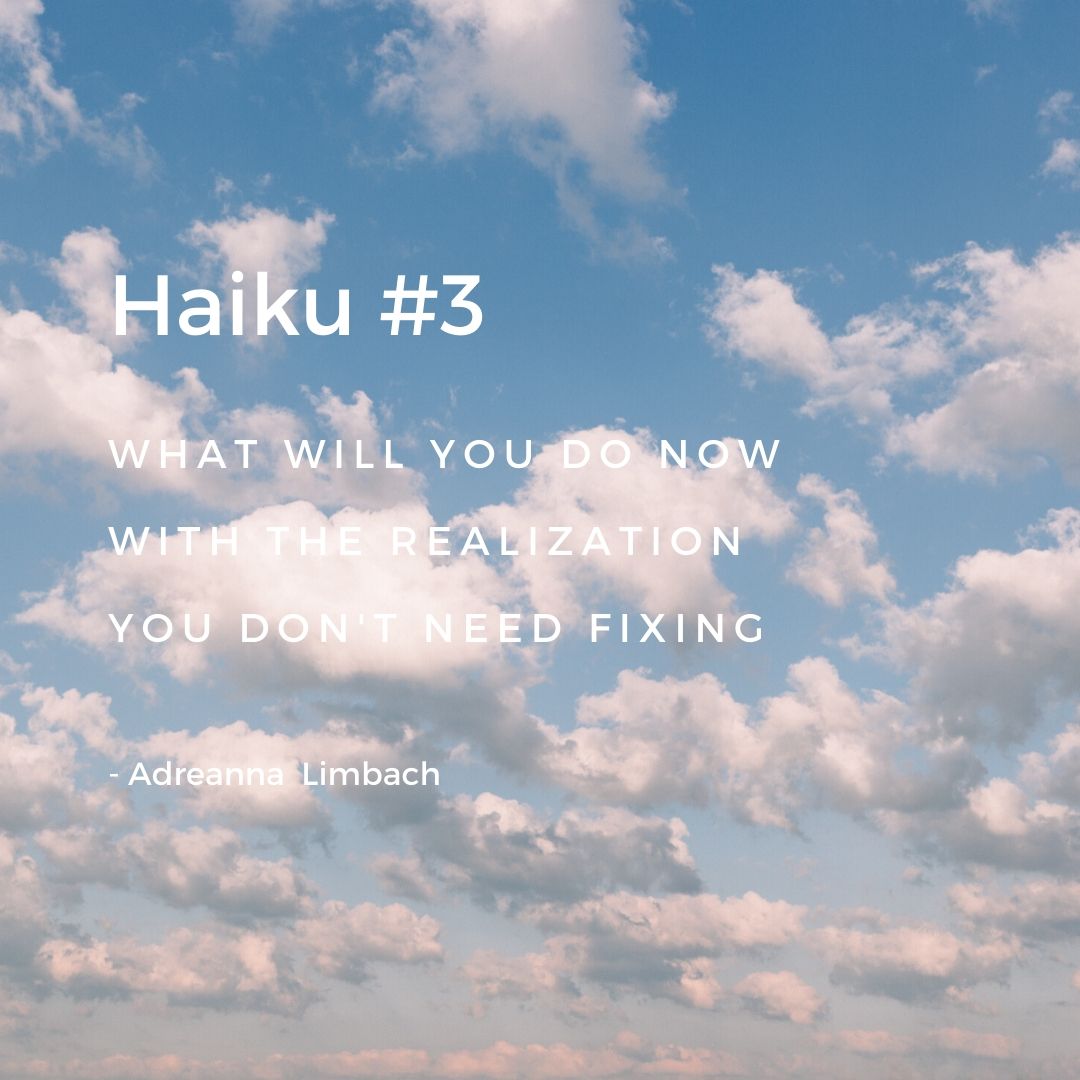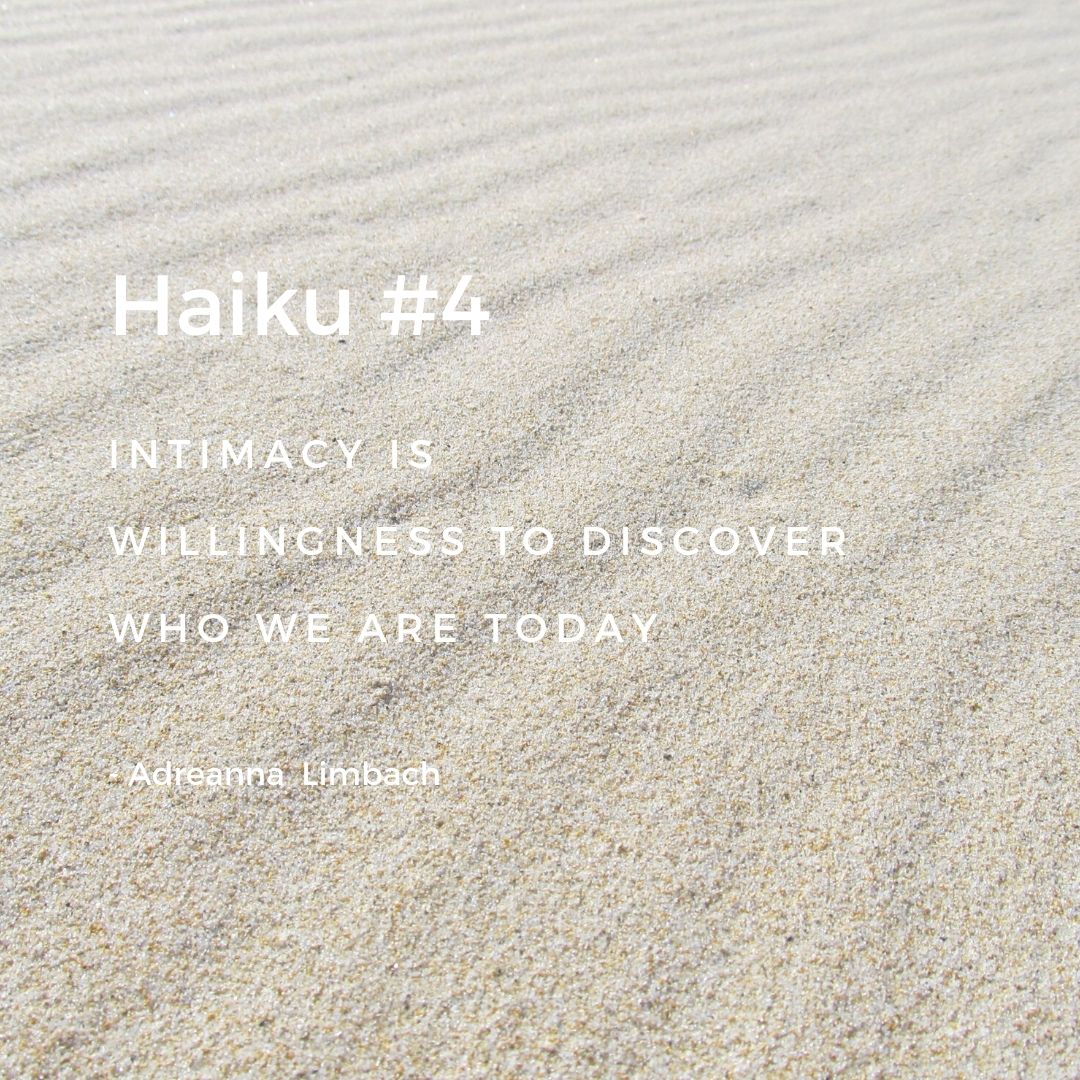Editor’s note: Today’s blog post is brought to us by Adreanna Limbach, author of Tea and Cake with Demons: A Buddhist Guide to Feeling Worthy, and a particularly inspiring Instagram follow. She joins us with a meditation to help face the anxiety many of us may be feeling in the face of Coronavirus, and a few uplifting haikus to keep in your back pocket.
There is a wonderful parable that my book Tea And Cake With Demons is based on, that — like many good parables, myths, and fables— serves as a pithy little instruction manual on how to be a human. Curiously, making it through life as a human being is something that many of us receive incomplete guidance on, and need to cobble together long into adulthood. I’m still figuring it out. Often, on a day-to-day basis. Particularly now, in a moment when we’re experiencing a global pandemic without a guidebook on how to deal.
There’s a very good chance that you, too, are working with some strong emotions as a result; anxiety, fear, uncertainty. The guiding mythology of Tea And Cake With Demons is the story of the Buddha inviting the demon Mara in for tea, and presents a bit of time-tested advice on how to work with these strong emotions skillfully. Namely, we’re advised not to fight what we’re feeling (either by distracting ourselves, or repressing our emotions) but rather to make some space to feel whatever we’re feeling, in a friendly and curious way.
We invite our anxiety to have a seat at the table. We give it space to be felt, witnessed, and heard, without trying to change it, and without making it a problem.
We’re extending an act of self-love and kindness towards ourselves in stressful times. This approach to working with our emotions also has the potential to take the sting out of them; by accepting them as an honored part of our experience, rather than rejecting them and making them wrong. Of course, this is easier said than done— which is exactly why we practice. Here is an excerpt on how to practice holding space for your anxiety — and other demons — the next time you’re feeling especially charged.

Meditation Practice: Make Space for Your Demons
As with Mindfulness of Breath meditation, begin by finding a comfortable seat. Again, there are no rules, as long as your body is upright in a position that feels sustainable. Take a few minutes to bookend our practice by feeling your body in space, sensing your environment, and then locating your breath in your body. Rest the attention here for just long enough to let the mind stabilize and bit and allow the body to settle. If we find our attention drifting, remember this is natural. In the tiny gap of recognition when we realize we’ve left our breathing, simply acknowledge where we’ve landed and return to the breath in the body.
Moving into contemplation, allow the eyes to gently shut if they haven’t already. Begin by taking a few moments to give yourselves a brief temperature check.
I recommend opening this contemplation with the question, “What does it feel like to be me?”
As our thoughts arise, stay watchful of what the mind and body produce in response to this question. Continue to return to this question itself as our object of meditation. In the spirit of non-judgment, I encourage you to notice what develops in this space without making it mean anything about you one way or another. We’re simply taking inventory, collecting information, getting a sense of what feels alive for us today. The response might be pretty obvious; maybe there is a strong or tender emotion that we’re coming into practice with. Perhaps the response today is subtle, not much of anything at all. That’s okay too. We’re just allowing whatever is honestly there to have space and time to express. Leave the door cracked open. Continue to return to the contemplation. “What does it feel like to be me?”

After a bit of time, we can loosen our focus on the question and bring our attention into the body. Whatever is arising in response to this contemplation, notice if and where it presents in our physical body, the felt expression of this mood or emotion. It might be worth spending a bit of time working with the felt sensations directly. Does this mood or emotion have a particular velocity, a way that it moves in our body? Perhaps it’s speedy; perhaps it’s a bit more still, or stagnant even. Does this mood or emotion have a particular space that it occupies in the body? Does this space feel expansive? Contracted? Both at times or something in between? Does this mood or emotion have a particular density? Does it feel thick, solid? Perhaps more wispy and ephemeral? Continue to feel into whatever is sincerely present in this moment.
In the moments that we notice ourselves drifting from this practice, turn and look at our minds. What are our thoughts doing here? Again, no judgment necessary. Perhaps we find ourselves avoiding or analyzing the situation. I encourage you, to the best of your ability to drop the narrative about what we might be feeling, and to return to the raw material itself: the felt sensation in our bodies.

If you find yourselves working with a strong, tender, restless, or inflamed emotion, and our demon material is clearly present, we might send our discomfort a bit of compassion as we continue to rest with it directly. Place your hands on that part of your body, and silently say, “I see you. Thank you for the information. I love you.” Notice how our afflicted emotions feel under the warmth of touch when we do not make them a problem.
After some time, notice if your mood or emotions have shifted at all since we began spending time with them directly. Maybe they’ve grown or subsided or are something very different all together. Again, there’s no need to make anything happen here. We’re just allowing space to feel our emotions directly.
We can continue to practice in this way for however much time we allotted ourselves. If you are still working with a strong, inflamed, or tender emotion when you’re ready to segue out of practice, you might consider visualizing a beautiful box to gently place your inflamed little demon in. In your mind’s eye, close the lid and turn the clasp, recognizing that you are emphatically not getting rid of your emotion; it is still wholly your responsibility. You’re just keeping it safe until you can spend more time with it directly.
In the final few moments of practice, allow the contemplation to drop and return to the breath in your body. Take a minute or two to rest here, feeling the body breathe as a way of bookending our practice.

Named one of the next generation of meditation teachers to watch by SONIMA, Adreanna Limbach is the author of Tea And Cake With Demons: A Buddhist Guide to Feeling Worthy [Sounds True, 2019]. She’s a Lead Teacher at MNDFL meditation studios in NYC where she also serves as a mentor for their 300 hour teacher training program. Her work has been featured by OPRAH Magazine, The New York Times, Refinery 29, Yoga Journal and Women’s Health. You can practice meditation with her online, every day at TheDAILY.Studio and find out more at AdreannaLimbach.com





